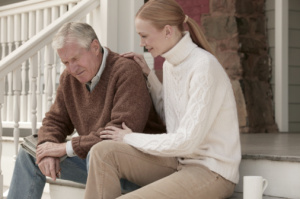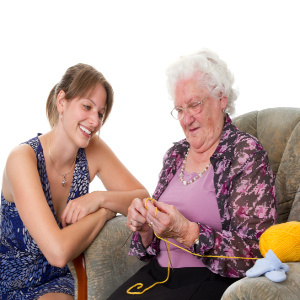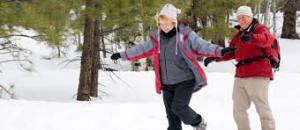By Diana Rodriguez
Getting older doesn’t necessarily mean you’ll have a slew of medical conditions or poor quality of life. Getting
older involves change, both negative and positive, but you can enjoy aging if you understand what’s going on with your body and take steps to maintain your health. Many different things happen to your body as you age. Your skin, bones, and even brain may start to behave differently. Don’t let the changes that come with old age catch you by surprise.
Here are some of the common ones:
YOUR BONES. Bones can become thinner and more brittle in old age, especially in women, sometimes resulting in the fragile bone condition called osteoporosis. Thinning bones and decreasing bone mass can put you at risk for falls that can easily result in broken bones. Be sure to talk with your physician about what you can do to prevent osteoporosis and falls.
YOUR HEART. While a healthy diet and regular exercise can keep your heart healthy, it may become slightly enlarged, your heart rate may lower, and the walls of the heart may thicken.
YOUR BRAIN AND NERVOUS SYSTEM. Getting older can cause changes in your reflexes and even your senses. While dementia is not a normal consequence of old age, it is common for people to experience some slight forgetfulness as they get older. Cells in the brain and nerves can be damaged by the formation of plaques and tangles, abnormalities that could eventually lead to dementia.
YOUR DIGESTIVE SYSTEM. As you age, your digestive tract becomes more firm and rigid, and doesn’t contract as often. This change can lead to problems such as constipation, stomach pain, and feelings of nausea; a better diet can help.
YOUR SENSES. You may notice that your vision and hearing aren’t quite as sharp as they once were. You may start to lose your sense of taste – flavors may not seem as distinct to you. Your senses of smell and touch may also weaken. Your body is taking longer to react and needs more to stimulat e it.
YOUR TEETH. The tough enamel that protects your teeth from decay can start to wear away over the years, leaving you susceptible to cavities. Gum disease is also a concern for older adults. Good dental hygiene can protect our teeth and gums. Dry mouth, which is a common side effect of many medications that seniors take, may also be a problem.
YOUR SKIN. With old age, your skin loses its elasticity and may start to sag and wrinkle. However, the more you protected your skin from sun damage and smoking when you were younger, the better your skin will look as you get older. Start protecting your skin now to prevent further damage, as well as skin cancer.
YOUR SEX LIFE. After menopause, when menstruation stops, many women experience physical changes like a loss of vaginal lubrication. Men may experience erectile dysfunction. Fortunately, both problems can be easily treated.
Many bodily changes are a natural part of aging, but they don’t have to slow you down. What’s more, there’s a lot you can do to protect your body and keep it as healthy as possible.
Here are some healthy aging tips that are good advice at any stage of life:
Stay physically active with regular exercise.
Stay socially active with friends and family and within your community.
Eat a healthy, well-balanced diet – dump the junk food in favor of fiber-rich, low-fat, and low-cholesterol eating.
Don’t neglect yourself: Regular check-ups with your doctor, dentist, and optometrist are even more important now.
Take all medications as directed by your doctor.
Limit alcohol consumption and cut out smoking
Get the sleep that your body needs.
Finally, taking care of your physical self is vital, but it’s important that you tend to your emotional health as well. Reap the rewards of your long life, and enjoy each and every day. Now is the time to savor good health and Happiness.












